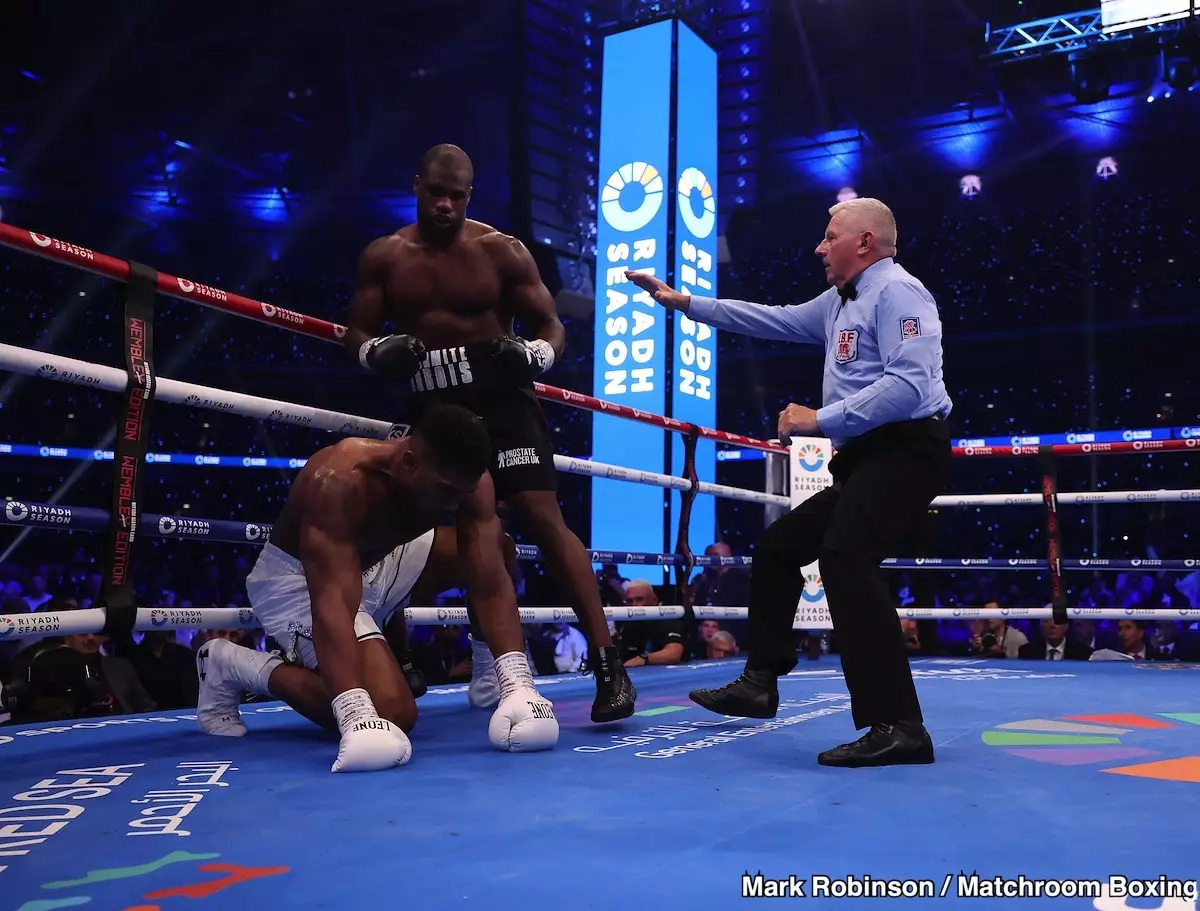The palpable shock that reverberated through the boxing world following the heavyweight clash at Wembley last night serves as a stark reminder of the unpredictable nature of sports. Anthony Joshua, once an indomitable force within the boxing arena, faced off against Daniel Dubois, a fighter considered an underdog by many. However, in a match that can only be described as a dramatic reversal of fortunes, Dubois showcased his formidable punching power, ultimately leading to an unexpected stoppage in the fifth round. This pivotal moment has sparked intense debates regarding Joshua’s future and the implications for the heavyweight division.
Daniel Dubois, labeled as a “quitter” in the past, transformed his narrative with a performance marred by determination and resilience. From the outset, the fight proved challenging for Joshua, who endured four knockdowns that painted a vivid picture of dominance from Dubois. Although Joshua’s fighting spirit shone through as he rose repeatedly from the canvas, the match revealed limitations that raise questions about his viability as a top-tier heavyweight contender. Dubois’s right hand, a weapon of mass destruction in the bout, left an indelible mark on Joshua’s career trajectory.
At 34 years of age, wading through a tumultuous career marked by triumph and adversity, Joshua’s latest loss adds a somber chapter to his legacy. Fans and pundits alike now wonder if this defeat marks a significant turning point, perhaps signaling the end of his reign as an elite fighter. Joshua’s previous efforts to rebuild his career through tactical shifts and trainer changes may be tested more than ever as he faces the reality of potential retirement or further decline. It poses critical questions: Can he reinvent himself once again? How much resilience remains in a fighter who has faced increasingly unpredictable outcomes in the ring?
In the grand tapestry of boxing history, this unexpected outcome may not rival the legendary upset of Buster Douglas over Mike Tyson or even Andy Ruiz’s victory against Joshua himself. However, it undeniably resonates within the heavyweight conversation alongside monumental moments like Hasim Rahman’s knockout of Lennox Lewis. Such comparisons underscore the cyclical nature of the sport and the relentless emergence of new talent capable of shaking the foundations established champions have built.
As for Daniel Dubois, his victory not only elevates his status but also presents thrilling future matchups against existing heavyweight titans such as Tyson Fury and Oleksandr Usyk. The landscape of heavyweight boxing has shifted dramatically, with Dubois now seen as a credible threat within this elite circle. His potential rematch with Usyk, a fighter who previously handed him a defeat, tantalizes fans and observers, prompting speculation about a possible redemption arc.
Last night’s events at Wembley were transformative, both for Anthony Joshua and Daniel Dubois. In the unforgiving sphere of boxing, victories and defeats alike can redefine legacies and set new trajectories. For Joshua, the road ahead seems steep and fraught with uncertainty, while Dubois’s ascent heralds the dawn of a promising new chapter in heavyweight boxing.

